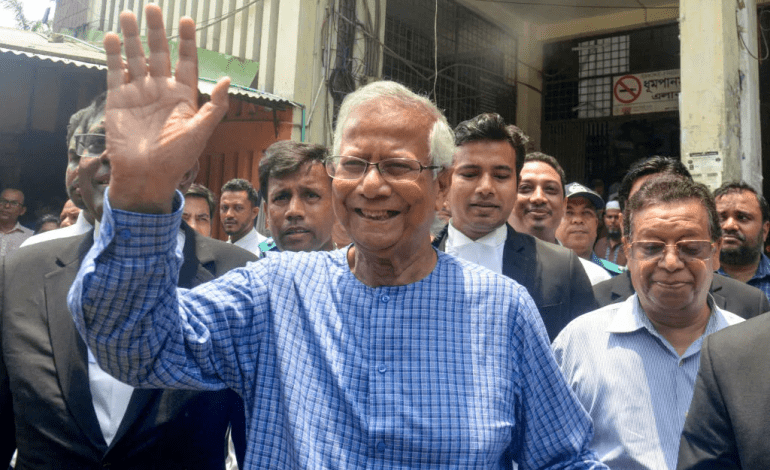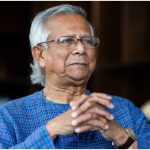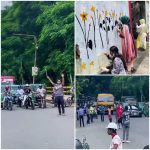Bangladesh: Yunus Takes Over As Interim Leader, Reshuffles Cabinet

A key organizer of Bangladesh’s student protests said Nobel Peace Prize laureate, Muhammad Yunus was their choice as head of an interim government, a day after longtime Prime Minister, Sheikh Hasina, resigned.
The country’s figurehead president and the military chief said Monday that an interim government would be formed soon.
Read More: Bangladesh Prime Minister Sheikh Hasina Resigns Under Pressure From Military and Mass Uprising
Nahid Islam, the organiser, said in a video post on social media that the student protest leaders have already talked with Yunus, who consented to take over considering the present situation of the country.
Yunus, who called Hasina’s resignation the country’s “second liberation day,” faced a number of corruption accusations and was put on trial during the former prime minister’s rule. He received the Nobel in 2006 after he pioneered microlending, and he said the corruption charges against him were motivated by vengeance.
Islam said the student protesters would announce more names for the government, and it would be a difficult challenge for the current leadership to ignore their choices.
Hasina resigned and fled the country Monday after weeks of protests against a quota system for government jobs descended into violence and grew into a broader challenge to her 15-year rule. Thousands of demonstrators stormed her official residence and other buildings associated with her party and family.
Her departure threatened to create even more instability in the densely populated South Asian nation that is already dealing with a series of crises, from high unemployment to corruption to climate change. Amid security concerns, the main airport in Dhaka, the capital, suspended operations.
READ: Army Takes Over Bangladesh After Protesters Seize Government House
Violence just before and after her resignation left at least 109 people dead and hundreds of others injured, according to media reports, which could not be independently confirmed. More than a dozen people were reportedly killed when protesters set fire to a hotel owned by a leader of Hasina’s party in the southwestern town of Jashore. More violence at Savar, just outside Dhaka, at least 25 people died, the reports said. Another 10 people died in Dhaka’s Uttara neighborhood.
The military chief, Gen. Waker-uz-Zamam, said he was temporarily taking control of the country, and soldiers tried to stem the growing unrest. Mohammed Shahabuddin, the country’s figurehead president, announced late Monday after meeting with Waker-uz-Zamam and opposition politicians that Parliament would be dissolved and a national government would be formed as soon as possible, leading to fresh elections.
Speaking after the embattled leader was seen in television footage boarding a military helicopter with her sister, Waker-uz-Zaman sought to reassure a jittery nation that order would be restored. Experts, though, warned the road ahead would be long.
The main opposition Bangladesh Nationalist Party Tuesday urged people to exercise restraint in what it said was a “transitional moment on our democratic path.”
“It would defeat the spirit of the revolution that toppled the illegitimate and autocratic regime of Sheikh Hasina if people decide to take the law into their own hands without due process,” Tarique Rahman, the party’s acting chairman, wrote on the social media platform X.
In a statement Monday, the United Nation’s human rights chief, Volker Türk, said the transition of power in Bangladesh must be “in line with the country’s international obligations” and “inclusive and open to the meaningful participation of all Bangladeshis.”
Hundreds of thousands of people poured into the streets waving flags and cheering to celebrate Hasina’s resignation. But some celebrations soon turned violent, with protesters attacking symbols of her government and party, ransacking and setting fires in several buildings.
Protests began peacefully last month as frustrated students demanded an end to a quota system for government jobs that they said favored those with connections to the prime minister’s Awami League party. But amid a deadly crackdown, the demonstrations morphed into an unprecedented challenge to Hasina, highlighting the extent of economic distress in Bangladesh, where exports have fallen and foreign exchange reserves are running low.
Waker-uz-Zaman promised that the military would investigate a crackdown that had left nearly 300 people dead since mid-July, some of the country’s worst bloodshed since the 1971 War of independence, and which had fueled outrage against the government. Nearly 100 people, including 14 police officers, were killed Sunday, according to the country’s leading Bengali-language daily newspaper, Prothom Alo. At least 11,000 people have been arrested in recent weeks.

Sodiq Yusuf is a trained media practitioner and journalist with considerable years of experience in print, broadcast, and digital journalism. His interests cover a wide range of causes in politics, governance, sports, community development, and good governance.









